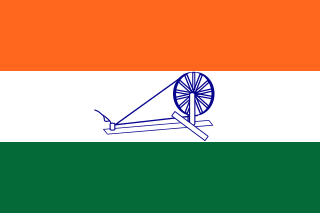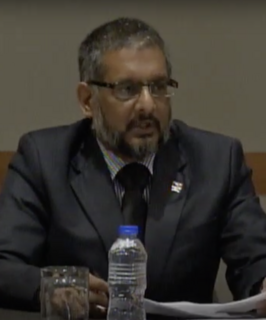Related Research Articles
Civil liberties are guarantees and freedoms that governments commit not to abridge, either by constitution, legislation, or judicial interpretation, without due process. Though the scope of the term differs between countries, civil liberties may include the freedom of conscience, freedom of press, freedom of religion, freedom of expression, freedom of assembly, the right to security and liberty, freedom of speech, the right to privacy, the right to equal treatment under the law and due process, the right to a fair trial, and the right to life. Other civil liberties include the right to own property, the right to defend oneself, and the right to bodily integrity. Within the distinctions between civil liberties and other types of liberty, distinctions exist between positive liberty/positive rights and negative liberty/negative rights.
Freedom of information laws allow access by the general public to data held by national governments and, where applicable, by state and local governments. The emergence of freedom of information legislation was a response to increasing dissatisfaction with the secrecy surrounding government policy development and decision making. In recent years Access to Information Act has also been used. They establish a "right-to-know" legal process by which requests may be made for government-held information, to be received freely or at minimal cost, barring standard exceptions. Also variously referred to as open records, or sunshine laws, governments are typically bound by a duty to publish and promote openness. In many countries there are constitutional guarantees for the right of access to information, but these are usually unused if specific support legislation does not exist. Additionally, the United Nations Sustainable Development Goal 16 has a target to ensure public access to information and the protection of fundamental freedoms as a means to ensure accountable, inclusive and just institutions.

The Freedom of Information Act (FOIA), 5 U.S.C. § 552, is a federal freedom of information law that requires the full or partial disclosure of previously unreleased information and documents controlled by the United States government upon request. The act defines agency records subject to disclosure, outlines mandatory disclosure procedures, and defines nine exemptions to the statute. The act was intended to make U.S. government agencies' functions more transparent so that the American public could more easily identify problems in government functioning and put pressure on Congress, agency officials, and the president to address them.

The National Flag of India is a horizontal rectangular tricolour of India saffron, white and India green; with the Ashoka Chakra, a 24-spoke wheel, in navy blue at its centre. It was adopted in its present form during a meeting of the Constituent Assembly held on 22 July 1947, and it became the official flag of the Dominion of India on 15 August 1947. The flag was subsequently retained as that of the Republic of India. In India, the term "tricolour" almost always refers to the Indian national flag. The flag is based on the Swaraj flag, a flag of the Indian National Congress designed by Pingali Venkayya.

The Freedom of Information Act 2000 is an Act of the Parliament of the United Kingdom that creates a public "right of access" to information held by public authorities. It is the implementation of freedom of information legislation in the United Kingdom on a national level. Its application is limited in Scotland to UK Government offices located in Scotland. The Act implements a manifesto commitment of the Labour Party in the 1997 general election, developed by David Clark as a 1997 White Paper. The final version of the Act was criticised by freedom of information campaigners as a diluted form of what had been proposed in the White Paper. The full provisions of the act came into force on 1 January 2005.
Freedom of religion in India is a fundamental right guaranteed by Article 25-28 of the Constitution of India. Modern India came into existence in 1947 and the Indian constitution's preamble was amended in 1976 to state that India is a secular state. Supreme Court of India ruled that India was already a secular state from the time it adopted its constitution, what actually was done through this amendment is to state explicitly what was earlier contained implicitly under article 25 to 28. Every citizen of India has a right to practice and promote their religion peacefully. However, there have been numerous incidents of religious intolerance that resulted in riots and violence, notably, the 1984 Anti-Sikh Massacre in Delhi, 1990 Anti-Hindu riots in Kashmir and Punjab, 2002 Gujarat Riots and the 2008 Anti-Christian riots in Odisha. Some perpetrators of the 1984 Anti-Sikh Massacre in Delhi have not been brought to justice despite widespread condemnation.
The Right to Information (RTI) is an act of the Parliament of India which sets out the rules and procedures regarding citizens' right to information. It replaced the former Freedom of Information Act, 2002. Under the provisions of RTI Act, any citizen of India may request information from a "public authority" which is required to reply expeditiously or within thirty days. In case of matter involving a petitioner's life and liberty, the information has to be provided within 48 hours. The Act also requires every public authority to computerize their records for wide dissemination and to proactively publish certain categories of information so that the citizens need minimum recourse to request for information formally.
Section 25 of the Canadian Charter of Rights and Freedoms is the first section under the heading "General" in the Charter, and like other sections within the "General" sphere, it aids in the interpretation of rights elsewhere in the Charter. While section 25 is also the Charter section that deals most directly with Aboriginal peoples in Canada, it does not create or constitutionalize rights for them.
The Nehru Report of 10 August 1928 was a memorandum to appeal for a new dominion status and a federal set-up of government for the constitution of India. It also proposed for the Joint Electorates with reservation of seats for minorities in the legislatures. It was prepared by a committee of the All Parties Conference chaired by Motilal Nehru with his son Jawaharlal Nehru acting as a secretary. There were nine other members in this committee. The final report was signed by Motilal Nehru and Jawaharlal Nehru, Ali Imam, Tej Bahadur Sapru, Madhav Shrihari Aney, Mangal Singh, Shuaib Qureshi, Subhas Chandra Bose, and G. R. Pradhan.
Human rights in India is an issue complicated by the country's large size and population, widespread poverty, lack of proper education, as well as its diverse culture, despite its status as the world's largest sovereign, secular, democratic republic. The Constitution of India provides for Fundamental rights, which include freedom of religion. Clauses also provide for freedom of speech, as well as separation of executive and judiciary and freedom of movement within the country and abroad. The country also has an independent judiciary as well as bodies to look into issues of human rights.

The Indian National Congress was established when 72 delegates from all over the country met at Bombay in 1885. Prominent delegates included Dadabhai Naoroji, Surendranath Banerjee, Badruddin Tyabji, W. C. Bonnerjee, S. Ramaswami Mudaliar, S.Subramanya Iyer and Romesh Chunder Dutt. The Englishman A.O. Hume, a former British civil servant was one of the founding members of the Indian National Congress.
In general, censorship in India, which involves the suppression of speech or other public communication, raises issues of freedom of speech, which is protected by the Indian constitution.
Fundamental rights in India are the rights guaranteed under Part III of the Constitution of India. There are six fundamental rights recognised by the Indian constitution: the right to equality, the right to freedom, the right against exploitation, the right to freedom of religion, cultural and educational rights and the right to constitutional remedies.
Censorship in Bhutan refers to the way in which the Government of Bhutan controls information within its borders. There are no laws that either guarantee citizens' right to information or explicitly structure a censorship scheme. However, censorship in Bhutan is still conducted by restrictions on the ownership of media outlets, licensing of journalists, and the blocking of websites.

Internet censorship in India is done by both central and state governments. DNS filtering and educating service users in suggested usages is an active strategy and government policy to regulate and block access to Internet content on a large scale. Also measures for removing content at the request of content creators through court orders have become more common in recent years. Initiating a mass surveillance government project like Golden Shield Project is also an alternative discussed over the years by government bodies.
The Constitution of India provides the right of freedom, given in article 19 with the view of guaranteeing individual rights that were considered vital by the framers of the constitution. The right to freedom in Article 19 guarantees the freedom of speech and expression, as one of its six freedoms.

Devant Maharaj is a Trinidad and Tobago politician, and social activist. He is a leading member of the United National Congress. On June 27, 2011, he became a member of the Senate of the Republic of Trinidad and Tobago and Minister of Transport following his appointment as Chairman of the Public Services Transport Corporation of Trinidad and Tobago.

Prevention of Money Laundering Act, 2002 is an Act of the Parliament of India enacted by the NDA government to prevent money-laundering and to provide for confiscation of property derived from money-laundering. PMLA and the Rules notified there under came into force with effect from July 1, 2005. The Act and Rules notified there under impose obligation on banking companies, financial institutions and intermediaries to verify identity of clients, maintain records and furnish information in prescribed form to Financial Intelligence Unit - India (FIU-IND).
Freedom of speech is the concept of the inherent human right to voice one's opinion publicly without fear of censorship or punishment. "Speech" is not limited to public speaking and is generally taken to include other forms of expression. The right is preserved in the United Nations Universal Declaration of Human Rights and is granted formal recognition by the laws of most nations. Nonetheless, the degree to which the right is upheld in practice varies greatly from one nation to another. In many nations, particularly those with authoritarian forms of government, overt government censorship is enforced. Censorship has also been claimed to occur in other forms and there are different approaches to issues such as hate speech, obscenity, and defamation laws.

Jagdish Sharan Verma was an Indian jurist who served as the 27th Chief Justice of India from 25 March 1997 to 18 January 1998. He was the chairman of National Human Rights Commission from 1999 to 2003, and chairman of the Justice Verma Committee Report on Amendments to Criminal Law after the 2012 Delhi gang rape case. He remains one of India's most highly regarded Chief Justices and eminent jurists.
References
- ↑ "The Freedom of Information Act, 2002". indiankanoon.org. Retrieved 2018-07-07.
- ↑ "Right to Information". rti.gov.in. Retrieved 2020-07-29.
- ↑ "Detailed Analysis of the Indian Freedom of Information Act 2002" (PDF).
- ↑ Mathur, Kuldeep (2008). From Government to Governance: A Brief Survey of the Indian Experience. National Book Trust, India. ISBN 9788123754109.